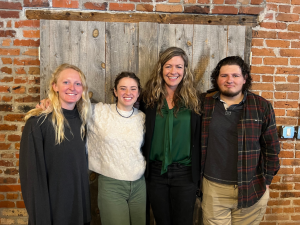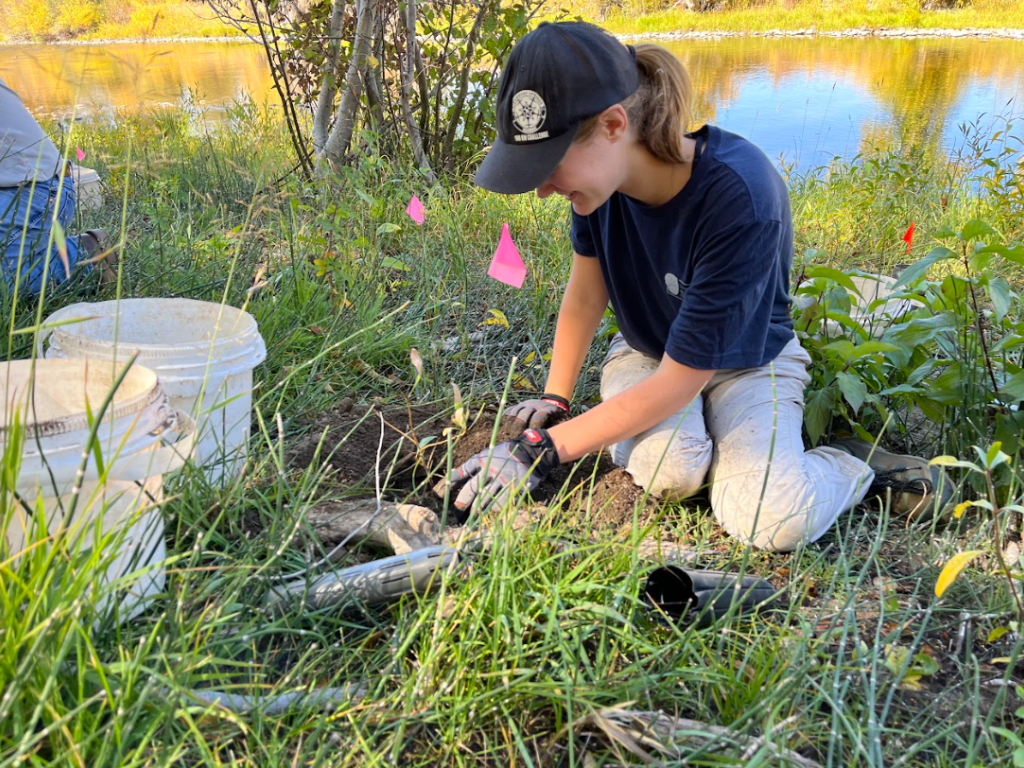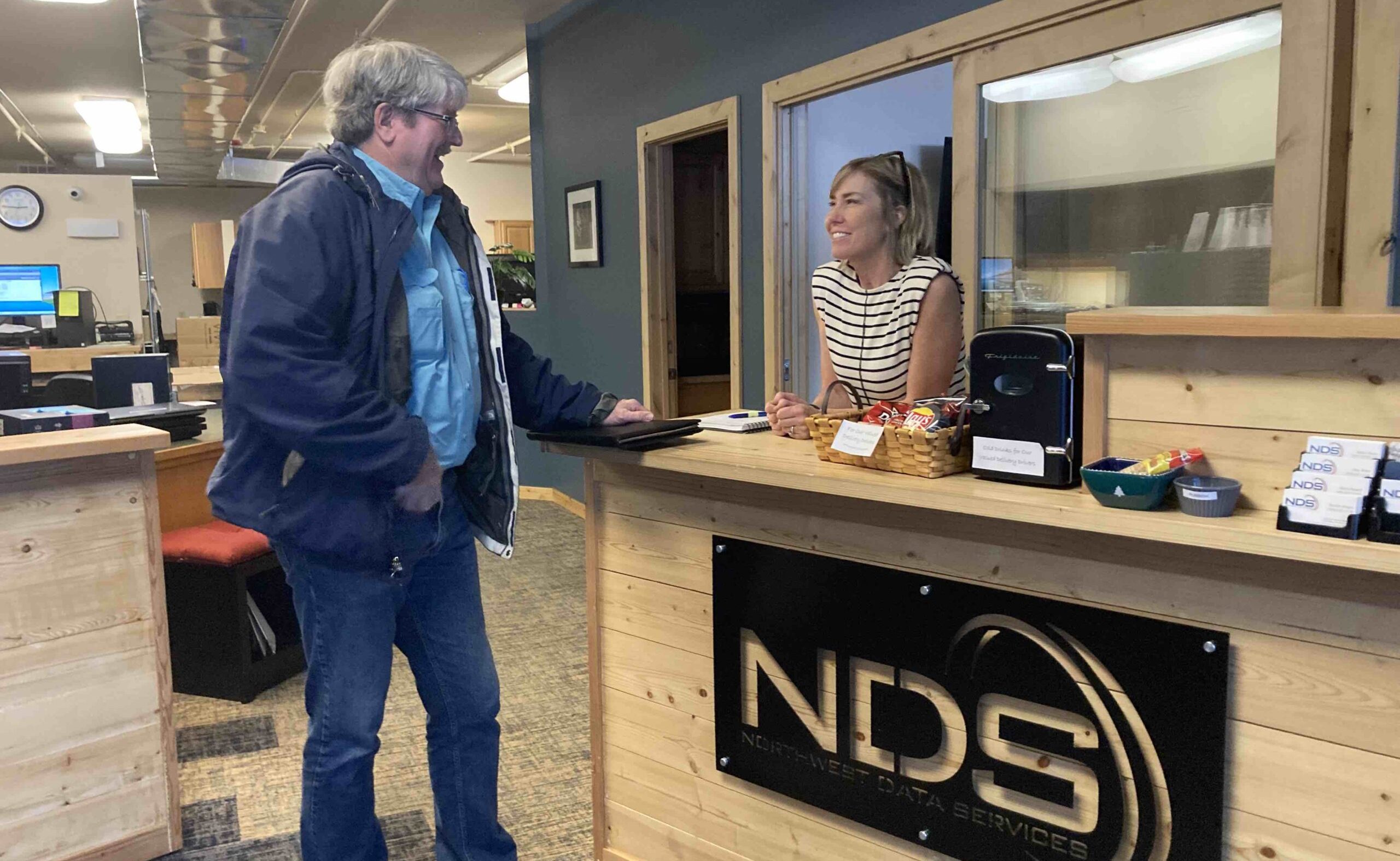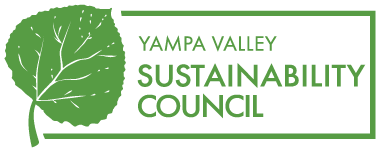Nicole Pepper, Geospatial Analyst and Internship Program Manager | December 19, 2022
Principles of sustainability and resiliency can be applied to so many different parts of our lives. From the food we eat and the things we buy, to where we live and how we travel. Sustainability is both a value and an action. It can even be… a career path. A full blown career in sustainability may not be for everyone but the principles of sustainability, which center around taking actions that do not diminish opportunities or the quality of life for future persons, can apply to any industry or career path. If you’re wondering if a career in sustainability may be for you, an internship is a good place to start.
do not diminish opportunities or the quality of life for future persons, can apply to any industry or career path. If you’re wondering if a career in sustainability may be for you, an internship is a good place to start.
In 2021, Yampa Valley Sustainability Council (YVSC) formalized the YVSC Internship Program to provide training and experience for career pathways related to the environment and sustainability. Internships are a type of experiential learning that focus on developing technical and professional skills for a given career path. They are typically short-term and geared towards students or early career professionals who learn how to apply their knowledge professionally in a structured and supervised way. In the environmental and sustainability fields, internships are a great way to explore your interests, to learn from mentors in the field, and to gain valuable work experience in your career path.
Here are just 7 of the many benefits of participating in an internship with YVSC:
1. Get hands-on, applied experience
Internships are a great way to exercise and apply your learning from the classroom in a traditional work environment. In addition to developing technical and practical skills, internships are a great way to practice your professional, leadership, and interpersonal skills.
2. Strengthen your resume
Internships are a great way to get work experience when you are new to a field. An internship can help add a competitive edge to your resume. According to a survey by the Harvard Business school, 37% of the 600 participating employers ranked relevant work experience as the most important qualification when hiring for a position.
3. Build valuable connections
One of the most valuable parts of an internship is the opportunity it provides to work alongside others in your field of interests. There is much to be learned from supervisory staff, fellow interns, or even partners to the organization. During your internship, it is a good idea to connect with mentor figures to learn from their perspectives, experiences, knowledge, and advice in the field. It’s also a great way to build your network of professional relationships which can help increase your broader connections to leverage in your field.
4. Explore different career paths
Since internships are typically short-term and focused on training, they are a great way to explore different career interests. There are a ton of different directions that you can go when it comes to careers in sustainability and the environment. It’s important to learn what you like and don’t like about different aspects of a job, so you can find a career path that’s best fit for you. Many of the skills that you learn from one job can be transferable skills for any career pathway.
5. Grow as a person
An intern experience does not just focus on professional growth, they also help you grow personally. During an internship you get to meet new people and learn about the world around you. At times you face challenges, are put out of your comfort zone, and are provided with opportunities to problem solve. They are a great time to self-reflect and get feedback on how to grow both personally and professionally,
6. Increase your knowledge of sustainability and the environment
Internships focused on sustainability and the environment are a great way to increase your foundational knowledge in this field. Not only is it a great way to increase your literacy in relevant concepts, they also can provide valuable insight on how issues are being addressed locally. Whether or not you are on track for a sustainability profession, the skills that you learn in an internship can be transferable and valuable for any career.
7. Engage in meaningful work that matches your personal values
Many of those who find themselves in the Yampa Valley and in the outdoors, have a special and personal tie to the natural environment. As outdoor recreators, we are often taught about principles of Leave No Trace (LNT), a code of ethics based on the idea of leaving a place better than how you found it, for future people to enjoy. This principle can be applied beyond your time recreating in the outdoors. A career that considers sustainability and the environment is a great way to engage in meaningful work that matches your personal values.
If you or someone you know is interested in gaining experience and professional training in the environment, consider the Yampa Valley Sustainability Council Internship Program. Our internships are project-based, which allows participants to explore local applications of sustainability in their area of interest. Positions are part-time and paid. In 2023 we will host 3 internship terms. Our Spring Term runs from February 6 to April 28, our Summer Term from May 22 to August 11, and our Fall Term from September 11 to December 1. Applications for our Spring Term are open from January 1 -28. Please visit the YVSC Internship Program page or reach out to Nicole Pepper, YVSC Internship Program Manager, with any questions about the program or how to apply.






